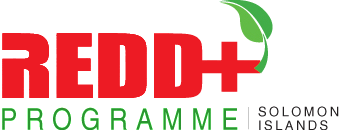Given that 90% of land in Solomon Islands is held as customary land and the majority of REDD+ activities will be undertaken on these lands, the free, prior and informed consent (FPIC) of customary landowners will be required for almost all REDD+ activities. With assistance from the UN-REDD Programme, the Solomon Islands Government has prepared Guidelines for Developing Stakeholder Engagement REDD+ within the Solomon Islands (draft, February 2014).
Unlike Vanuatu where the National Council of Chiefs (the “Malvatumauri”) is established under the Constitution, there is no national federation of indigenous peoples in Solomon Islands. In some provinces, tribal groups have formed a Council of Chiefs, such as the Isabel Council of Chiefs, the Guadalcanal Council of Chiefs, and the Lauru Land Conference of Tribal Communities, a community-based landowner structure which represents all landholders in Choiseul Province. These structures could facilitate the process for seeking and obtaining FPIC for REDD+ activities at the provincial level.
At the local level, there is no over-arching national legislation which set out a prescribed process for consulting and obtaining the consent of tribal groups for activities affecting their land. Experience to date with the process for obtaining landowner consent for commercial logging under the Forest Resources and Timber Utilisation Act, has been highly problematic and does not meet the international standards for FPIC (see the 2007 United Nations Declaration on the Rights of Indigenous People). The Customary Land Records Act, which sets out a process for identifying and recording which tribes hold primary and secondary rights over customary land, may provide a potential entry point for FPIC processes.

